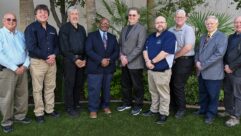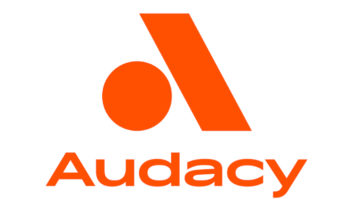Why would Ibiquity let Glynn Walden walk out the door, much less give him a push, as seems to be the case? And could the company have picked a worse time to lose the man most closely associated with IBOC?
In case you missed it, Radio World Online broke the story in July that Glynn Walden and two other managers had been laid off by digital radio developer Ibiquity, which cited cost-cutting. In fact the company put out a statement with the phrase “Glynn Walden announced his departure,” but this was a layoff, sources confirm.
Many in the industry think it was more than that. Some speculated privately that someone had to take the fall for the controversy over PAC and the NRSC’s decision to stop standards work. Ibiquity, as it often does to its detriment, said little publicly; so speculators were free to run wild about the company’s health and the reasons management chose to release Walden.
To its credit, Ibiquity praised Walden in a brief statement. “It would be difficult to overstate the contribution Glynn has made to what Ibiquity has accomplished over the years. Glynn Walden was one of the original visionaries for IBOC digital radio. Glynn should be very proud of his accomplishments, and we are honored to have had him as an employee.”
Darn right. That’s why I and so many other radio people are stunned.
Driven force
Walden was a co-founder of USA Digital Radio, a predecessor company to Ibiquity; and for many of us, he is the face of digital radio.
A former director of engineering for CBS Radio, for years he was the front man whenever USADR or Ibiquity needed to explain its technology to radio engineers in language they could understand. When a Radio World journalist needed information or help in understanding a concept, Walden invariably was helpful and patient, sharing as much time as necessary to help the writer comprehend.
One top engineer for a major broadcast group flatly called Walden’s departure a mistake for Ibiquity and told me, “We’re shaking our heads and wondering what the hell happened there.”
He described Walden as “one of the most honest, upfront guys at that organization,” and praised him not only for his advocacy of IBOC but also for his willingness to speak frankly about problems.
The engineer acknowledged that, at a large technology company, no job is ever really safe. “Who knows what can happen when there’s so much at stake?” But he also said, “We hear that Glynn was trying to tell Ibiquity that they had problems” with their codec, and that management wasn’t listening until the NRSC forced the company to focus on it.
Another prominent radio engineering executive expressed surprise and described the situation thus:
“Ibiquity has three challenges in order to become a self-sufficient business: They need receivers to be manufactured; they need broadcasters to turn on stations; they need the FCC to finalize IBOC rules. Glynn was the lead person on items 2 and 3.”
How all this will influence broadcasters in their planning about whether to go HD Radio is unclear. But with so many companies investing so much money in digital radio, and with serious questions raised in the codec selection process, Ibiquity now should be more forthcoming about the circumstances.
Most of us understand that differences of opinion can develop in any business endeavor; we are forgiving of a company’s need to move in a new direction. But tell us something. We feel as though we have lost an advocate for broadcasters in this transition.
All I know is, if I were running that company, I’d be doing everything in my power to make sure that Walden remained on board. It’s not an overstatement to say that Ibiquity wouldn’t be where it is without his vision and drive.
Deeply emotional
I will never forget interviewing Walden along with Leslie Stimson for a story in Radio World in 1998 about the future of digital radio; he was the subject of a page 1 story in my first issue as editor.
In my accompanying column, I shared an anecdote. It seems appropriate to repeat it.
At one point during our interview, Walden became reflective. The USADR team, he said with obvious feeling, is working on the future of broadcasting for the next century.
“We had a (videotape) in here one day on the history of radio,” he told us. “With all the engineers sitting around, I said, ‘Can you stop the tape for just a second?’ They were showing some shots of KDKA.
“I said, ‘You know, I was lucky enough to meet Leo Rosenberg, who announced the first broadcast on KDKA. I got to shake his hand and say hello to him, just before he died.'”
Walden continued, “And I said, ‘Seventy — five years ago in Pittsburgh — I get a little emotional about this – ‘seventy-five years ago in Pittsburgh, Westinghouse invented radio. Here in this room, you’re inventing the next century of radio.'”
At this point in our discussion, Glynn Walden had tears in his eyes.
I wrote in 1998 that I was comforted, knowing that people like Walden were hard at work on the future of our medium. Now I’m deeply sorry to learn that he is no longer on the team.












